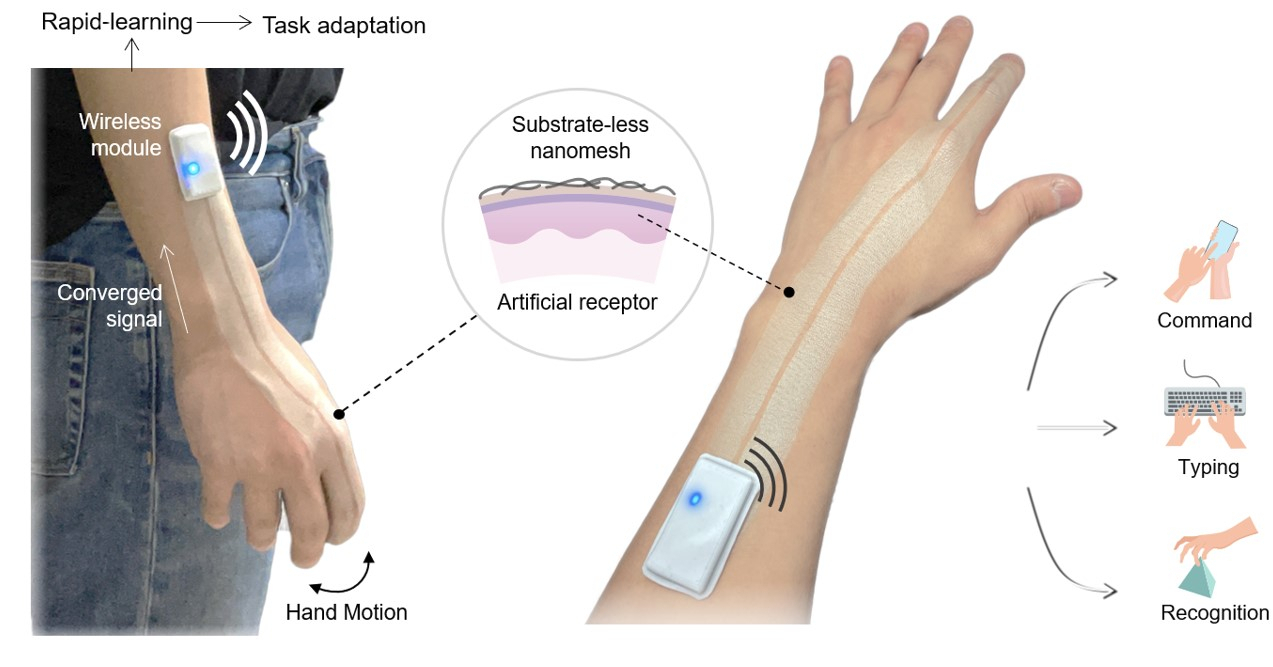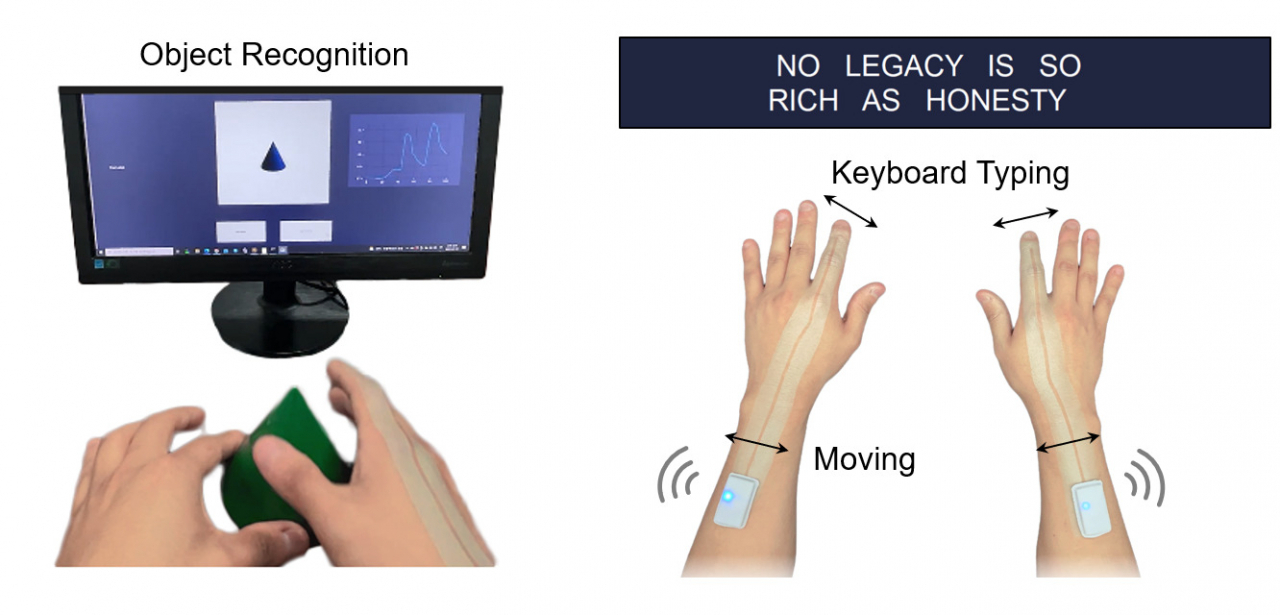Typing without keyboard becomes reality
Researchers develop world’s 1st meta-learning electric skin technology
By Kan Hyeong-wooPublished : Dec. 29, 2022 - 09:00

A group of researchers led by South Korean scientists have developed the world’s first meta-learning electric skin technology that enables typing without a keyboard, the Ministry of Science and ICT said Wednesday.
The research team of Jo Sung-ho, a computing professor at Korea Advanced Institute of Science and Technology, Ko Seung-hwan, a mechanical engineering professor at Seoul National University and Zhenan Bao, a chemical engineering professor at Stanford, came up with a “spray-on smart skin” for the new scheme.
The researchers sprayed electrically-sensitive liquid on the skin to automatically print electrically-sensitive nanometers-thick-mesh stretching from the forearm to the back of the hand. The mesh caused electric signals as the movement of the hand made the mesh stretch or shrink. The electric signals were received by a Bluetooth module, which was attached to the end of the mesh on the forearm. The gathered information was transmitted to the computer wirelessly.
The researchers then let the computer’s artificial intelligence learn different movements of the hand. They eventually confirmed that various work can be done in the virtual space after a few trials of certain movements.
For instance, the researchers succeeded in typing on a computer with only hand movements and without a keyboard after the spray-on smart skin learned how the hands and fingers moved when the person used the keyboard to type certain words.
According to the researchers, the new scheme was also able to draw an object on the screen by just touching the object with the hands that had the spray-on smart skin.

The Science Ministry pointed out that existing devices with electric skin technology are mostly large and lack flexibility, and that their structures have limitations in responding to numerous joint issues in the human body.
The researchers added that current wearable devices face difficulties in expanding into various fields because they rely on mass-collected data with adversities in coping with different users and purposes.
The ministry underlined that this study overcame the limitation of collecting mass data for each movement and increased the versatility of future wearable devices as the electric sensors can be directly sprayed onto the skin.
“This study is the first case that combines the technologies of electric skin and cutting-edge artificial intelligence. Both the (newly developed) hardware and software increased the user convenience to bring technological innovation in the fields of the metaverse, augmented and virtual reality, remote treatment and robot engineering in the future,” said Jo and Ko.
The study has been published in Nature Electronics, a monthly online peer-review journal.









![[Hello India] Hyundai Motor vows to boost 'clean mobility' in India](http://res.heraldm.com/phpwas/restmb_idxmake.php?idx=644&simg=/content/image/2024/04/25/20240425050672_0.jpg&u=)









